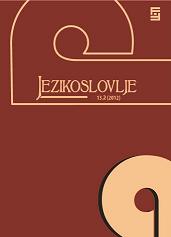Reflexes of the Habsburg empire multilingualism in some Triestine literary texts
Reflexes of the Habsburg empire multilingualism in some Triestine literary texts
Author(s): Vesna DeželjinSubject(s): Language and Literature Studies
Published by: Filozofski fakultet, Sveučilište Josipa Jurja Strossmayera, Osijek
Keywords: multilingualism; loanword; Triestine dialect
Summary/Abstract: In 1964 two contemporary Triestine writers, Lino Carpinteri and Mariano Fara-guna, published a book of poems entitled Serbidiòla. The poems, full of nostalgia, speak about the past when the Habsburg town of Trieste was the most important Adriatic harbour and a significant Central European centre. The book was an absolute success since it was one of the first that showed how profoundly one of the largest and most powerful states in Europe’s modern history had been, and still was, interwoven into collective memory, not only of Trieste’s citizens, but also that of many people living in the territories surrounding the town and even in regions further away from Trieste, such as Dalmatia. Apart from numerous scenes evoking places and events connected to the history of the town during the last three decades of the Habsburg Empire and, consequently, its government in Trieste, another element worth mentioning is of linguistic nature. Poems written in the Triestine dialect attract the scholar’s attention because of the number of borrowings, either formally integrated or not, that penetrated into the Triestine dialect from languages used in the town and elsewhere in the Empire as well. An analysis of the texts shows that German, Croatian, Hungarian and other loanwords belong to different semantic fields and that they perform important textual functions.
Journal: Jezikoslovlje
- Issue Year: XIII/2012
- Issue No: 2
- Page Range: 419-437
- Page Count: 19
- Language: English

